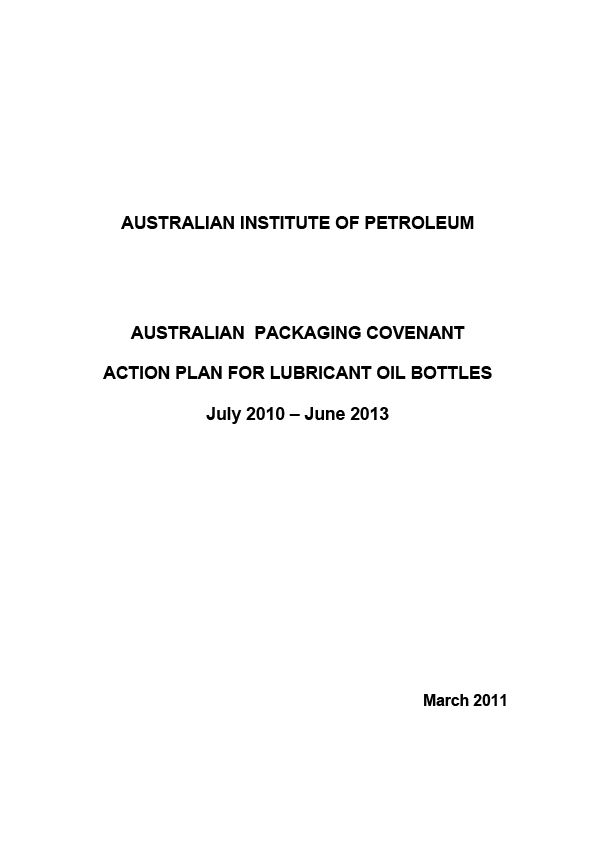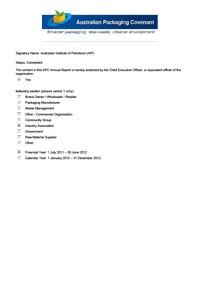Waste Management and Recycling
AIP member companies, individually, and collectively through AIP, share the general community concern for conservation of the environment. Appropriate waste management is an important part of this. AIP member companies have active waste management programs in place in their operations.
Waste Oil Collection and Recycling
The Australian Institute of Petroleum (AIP) and its member companies are committed to sound environmental practices in all their operations. As part of this, it is a policy of the member companies of AIP to work with their lubricating oil customers to encourage the responsible disposal of used lubricating oil by the customer.
This (AIP) Information Service is designed to assist users of lubricating oil to ensure that used oil generated by their activities can be disposed of in an environmentally sound way.
For contacts and additional information on the used oil recycling program, including the Product Stewardship for Oil program, see https://www.environment.gov.au/protection/used-oil-recycling/product-stewardship-oil-program.
Collection and Recycling of Used Plastic Lubricant Containers
Lubricants are not completely consumed in use and result in waste oil that needs to be collected and recycled. AIP members have adopted a product stewardship role for their products and are actively supporting the collection and recycling of waste oil and its packaging.
The Australian Government has introduced a product stewardship scheme for waste oil to support recycling, funded through an excise on sales of lubricants. AIP members are also active signatories to the Australian Packaging Covenant which aims to design more sustainable packaging, increase recycling rates, and reduce packaged litter.
AIP, on behalf of its member companies, established and operated a collection and recycling program for used plastic oil containers across Australia for more than ten years. However, due to significant free rider issues where around half of all market participants did not financially contribute to the scheme, the program was closed at the end of 2016. At full scale, over 430 collection sites across Australia were maintained by VIP Packaging on behalf of AIP, with around 500 tonnes of plastic being recycled into various industrial products.
AIP remains committed to identifying a workable solution where all industry participants (beyond the four AIP members) contribute to managing this waste stream. AIP supported the listing of Used Oil Bottles on the National Product Stewardship List in mid-2016 and expects that this process will deliver a workable solution to this waste stream.
The Australian Packaging Covenant Plan
The Covenant is a voluntary initiative by Government and Industry to reduce the environmental effects of packaging. It is designed to minimise the environmental impacts arising from the disposal of used packaging, conserve resources through better design and production processes and facilitate the re-use and recycling of used packaging materials. The Covenant establishes a framework for the effective life cycle management of consumer packaging that will be delivered through a collaborative approach.
Companies, government agencies and industry associations sign the Covenant and commit to certain responsibilities which contribute to achieving the Covenant Performance Goals and KPI’s. Anyone involved in the packaging supply chain is invited to sign the Covenant.
All signatories to the Covenant recognise that a co-operative approach between industry and all spheres of government is essential to achieving national consistency in the lifecycle management of packaging and the implementation of sustainable kerbside collection systems.
AIP and its Member Companies involved in lubricant production/blending have developed and revised Action Plans covering used plastic lubricant containers. The first Action Plan was submitted to the Australian Packaging Covenant in December 2001 and subsequent plans have been submitted and accepted.
The Action Plan contains an important commitment to be undertaken by AIP and its Member Companies in collection and recycling of the containers. AIP and its Member Companies are now working to implement this commitment.

